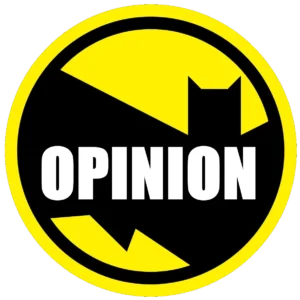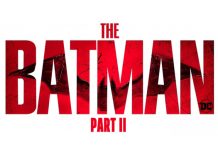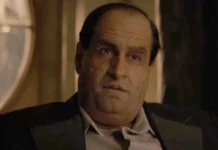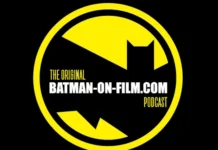EDITOR’S NOTE: The opinions expressed by Batman-On-Film.com contributors do not necessarily reflect those of the website’s Founder/EIC nor should they be considered the official stance of BOF.
 WB has a director in place to make a Superman solo movie that aims to revitalize the character while also launching a shared universe of DC characters on film. The hope is that this solo Superman movie will pave the way for other DC projects already in the works. And of course one of those projects is a new take on Batman, waiting in the wings to generate audience interest in case the other projects don’t quite meet expectations. This is the plan even though there’s a successful Batman solo series already going.
WB has a director in place to make a Superman solo movie that aims to revitalize the character while also launching a shared universe of DC characters on film. The hope is that this solo Superman movie will pave the way for other DC projects already in the works. And of course one of those projects is a new take on Batman, waiting in the wings to generate audience interest in case the other projects don’t quite meet expectations. This is the plan even though there’s a successful Batman solo series already going.
Are we talking about 2013 or 2024?
Kidding aside, the list of similarities to previous attempts at a shared DC universe is obvious to anyone paying attention. That means the differences will have to be the reasons WB gets a better result this time around. The first big difference is the director running things, James Gunn. He’s got a track record that Zack Snyder didn’t have, so there’s plenty of room for optimism on that front. His sensibilities are more in line with what general audiences are looking for, and I’m personally very excited to see what he has in store for Superman specifically.
But there’s another way WB can differentiate this attempt at a shared universe from the last attempt, and that’s the subject of this op-ed. Last time around, Batman took over the second installment which was a Superman sequel in name only. When Man of Steel failed to meet WB’s box office projections, they panicked and decided to go straight to Batman, their ace in the hole (or so they thought). With James Gunn’s recent confirmation that the DCU Batman movie The Brave and the Bold won’t wait until Matt Reeves is done with his series, WB leaning on Batman again is very much a possibility. And if Superman: Legacy underperforms, you can bet those conversations will happen, if they haven’t happened already.
But they shouldn’t.
For Batman’s sake — and the sake of the overall DCU — they shouldn’t do that. WB should wait until Reeves is done, and maybe even longer, before they debut Batman in the DCU.
Why would this be good for Batman? For one thing, he’s doing just fine in Matt Reeves’ hands, and you want directors like Reeves in your corner. Unless Reeves enthusiastically supports DCU Batman releasing alongside his series, don’t overlap them. Honestly, until Reeves is done, don’t do anything with Batman except what he says. You might argue Batman is bigger than any one director, but he won’t be for long if he’s paraded out every time WB needs DC movie cash. He didn’t turn BvS into a hit. He didn’t turn The Flash into anything. He’s not a guaranteed hit unless the movie itself is good, and “We need to save our shared universe!” is not ever going to be the starting point for making a good movie.
RELATED | OPINION: The DCU Batman Can Wait
Could The Brave and the Bold be a big hit even if it comes out before Reeves’ series is done? It’s possible, sure. But then what? How big do both have to be for both to be considered must-see-in-the-theater? With everything eventually coming to streaming services, and the deluge of comic book movie content in general, there’s a real risk of turning one of those series into niche content. And that’s assuming both are well-received by audiences, which is no guarantee at all. Let these things have their space and breathe. Let audiences follow Reeves’ Batman through his journey, then miss the character for a bit, and then see him again.
And why would this be good for the DCU? Like it or not, the DCU is trying to do what the MCU did. There are some things that the MCU had going for it that will never be replicated; the main one being novelty. No one else is ever going to have the first shared comic book movie universe or the first superhero team-up movie. And that might be enough to doom any other attempts, but I’m not convinced; at least until there’s a well-executed attempt that still fails (which is why, sadly, I don’t count the DCEU).
So what did Marvel do that can be replicated? They started small, with solo movies for characters that most of the general audience had never heard of. Before 2008, the most famous Iron Man was from a Black Sabbath song. No one even knew that Thor was also a comic book character, much less an Avenger in Marvel’s universe. Now — along with Captain America, Hulk, Black Widow, Black Panther, Ant-Man, and others — they are household names. How did that happen? Disney/Marvel Studios let audiences fall in love with them in strong solo outings first. They weren’t huge hits, but they were big enough to get momentum going and get audiences interested along the way. No one needed to know who Thanos was or what he was up to when they decided that Captain America was worth cheering for in his first movie. Thor and Loki carried that first movie on their own, and they’re the reason the first Avengers movie worked because their relationship and conflict were already established. By 2012, the MCU had a cast of characters that audiences wanted to follow, and that’s why they cared about the rest of The Infinity Saga.
Notice how much of that Disney/Marvel Studios was able to accomplish without their biggest character, Spider-Man. You could say that the MCU was successful despite not having access to Spider-Man at first. I’d argue that it was because they couldn’t lean on Spider-Man that things turned out so well. Don’t get me wrong, Spider-Man has been one of my favorite characters for as long as I can remember. I’m always going to be in the theater to see a Spider-Man movie. But when a character has a lot of well-known recent history, doing a new take comes with inherent challenges. You’ve got to improve on and depart from what’s happened before, even when what’s happened before has worked. Rather than spending their energy trying to reinvent Spider-Man, Marvel was free to give audiences first impressions of other characters and establish them as stars in their own right. One day they’ll have to do a new Iron Man without Robert Downey Jr., and I’m glad that’s not my problem.
ALSO READ | OPINION: The DCU Batman Can Wait by Bill “Jett” Ramey
But for now, WB/DC Studios is in a similar situation: Pick some of your lesser-known characters, focus on making great first impressions, and then let them breathe in their own stories for a while. You might respond that Superman has too much history to make a first impression. To an extent, that’s true. But we’re also eleven going on twelve years since we’ve seen a real solo Superman movie in theaters. Surround him with a great cast, and give him a great villain (that part is really important), and give him his time and space to succeed. Do the same with the other lesser-known DC characters you want to include. Work your way up to the ones people already know about, and when you introduce Batman and Wonder Woman again, you’ll be dropping them into a universe filled with other characters people already care about. That’s the time to scale it up. If you start with Batman, you’re asking audiences to accept a new version of a character they’ve already got opinions about, and they must be willing to go with what you’re offering and leave what they’re familiar with behind. Instead, you want them along for the ride from the very beginning, and you can do that by focusing on characters they don’t know yet.
I’m not dreading the DCU, and I’m not dreading The Brave and the Bold (soap opera title aside). I want it to succeed, and I’ll be thrilled if it does. But James Gunn has to be careful and play this correctly. You can’t just put superheroes into theaters and expect people to show. And you can’t just bank on Batman always being an audience draw. Gunn knows this, but I hope his bosses do too. Audiences will be just fine focusing on one Batman story at a time, and there are plenty of other corners and characters in DC to explore in the meantime. – Trey Jackson











